How to set up proxy on Chrome for macOS
In this tutorial we will show you how to set up Proxy on Chrome for macOS but first let’s see what are our requirements.
Requirements
In order to set up the Proxy on Chrome for macOS you will need:
- A CactusVPN account. If you don’t have one you can try our services for free.
- Your Proxy username, password and Proxy server address. You can find them in your account on our website, by going to Settings.
Recommendations
To skip the manual setup we recommend to use the CactusVPN Extension for Chrome.
Go step-by-step through following instructions:
-
In the Chrome browser, press the Customize and control Google Chrome button (1), and choose Settings (2).
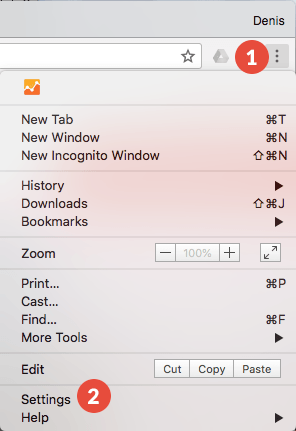
-
Scroll down to Advanced (3) and click on it.
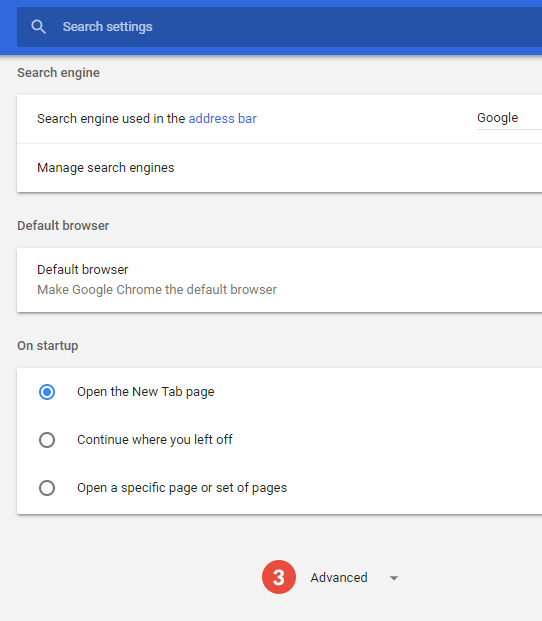
-
Scroll down to the System title and click on Open proxy settings (4).
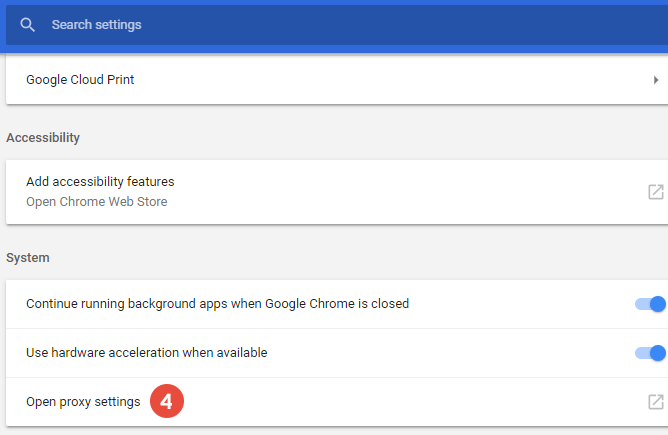
-
Check the Web proxy (HTTP) checkbox (5).
In the Web Proxy Server field (6) type the IP address of the CactusVPN proxy server you want to connect to and enter the Port number you want to use.
You can find IP addresses of all our servers in your account on our website, by going to Settings.
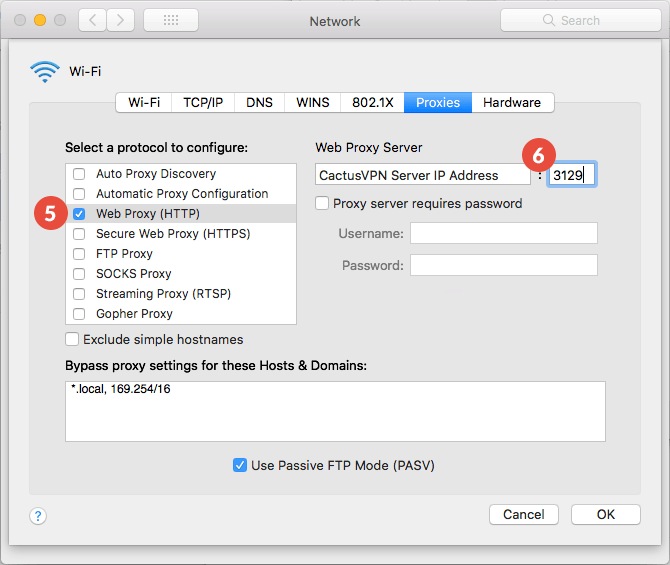
-
Check Secure Web Proxy (HTTPS) checkbox (7).
In the Secure Web Proxy Server field (8) type the IP address of the CactusVPN proxy server you want to connect to and enter the Port number you want to use.
Click on OK (9).
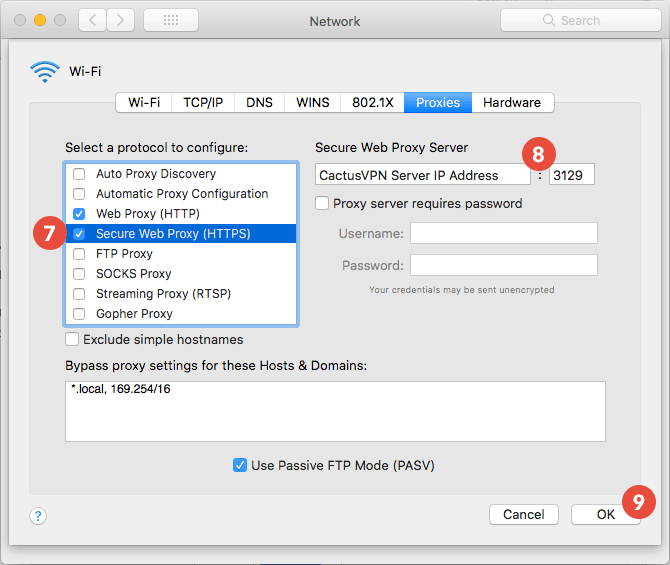
You may be asked to enter your Mac user password. Enter it (10) and click on Always Allow (11). If you don’t see a Always Allow button, click on Allow.
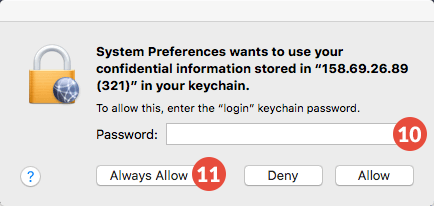
-
Click on Apply (12).
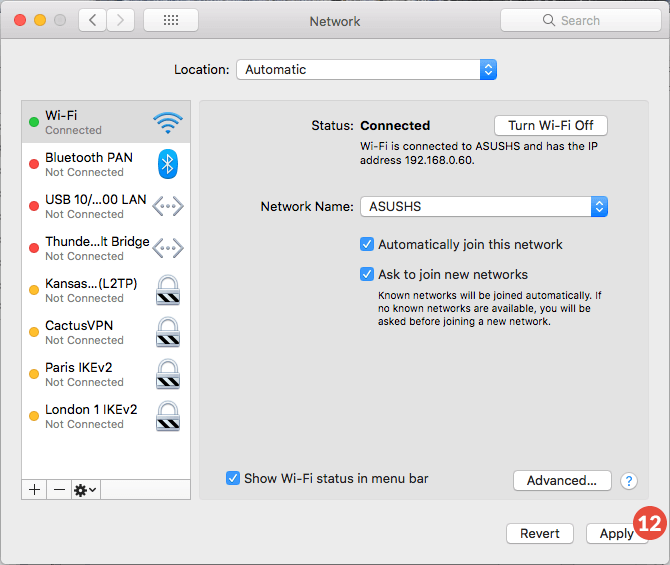
-
The first time you’ll try to visit a website, a window will appear asking for an username and a password. Type your VPN username and password (13).
You can find your VPN username and password in your account on our website, by going to Settings -> VPN Username & Password. Make sure you use your VPN username and password and NOT the website account credentials (What is the difference?).
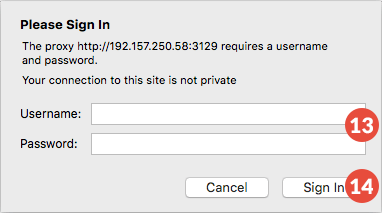
That’s all. Now you can browse safely and anonymous.
Popular tutorials like this
VPN and Smart DNS Services
Protect online privacy, secure your connection and access blocked websites
Try CactusVPN For Free